Table 8
Floating solar electrical subsystem components and functions.
| Subsystem type | Description | Components | Parameters | Functionality | Reference |
|---|---|---|---|---|---|
Inverters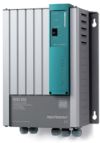 |
Convert the DC electricity produced by PV modules into AC electricity for grid compatibility. | Central inverters, string inverters, microinverters. | – Efficiency: 95–98% | Facilitate connection to the power grid and optimize energy output. | [70] |
| – Power rating: Up to several MW | |||||
Power management systems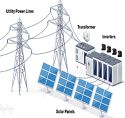 |
Manage the flow of electricity between the PV modules, inverters, and the grid. | Controllers and monitoring systems. | – Response time: Real-time monitoring | Ensure efficient energy distribution and system performance monitoring. | [71] |
| – Communication protocols: Modbus, CAN | |||||
Subsea cables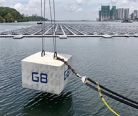 |
Underwater cables used to transmit electricity from floating solar arrays to onshore connections. | High-voltage AC or DC cables. | – Voltage rating: Up to 36 kV | Enable long-distance power transmission while minimizing losses. | [65] |
| – Waterproofing: IP68 rated | |||||
Connectors and junction boxes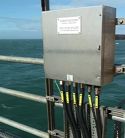 |
Components that connect individual PV modules and facilitate safe electrical connections. | Weatherproof connectors, junction boxes. | – Current rating: Up to 30 A | Protect electrical connections from water and environmental damage. | |
| – IP rating: IP67 or higher | |||||
Energy storage systems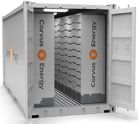 |
Batteries or other storage technologies to store excess energy generated by the system. | Lithium-ion batteries, flow batteries, etc. | – Capacity: Varies (kWh) | Provide backup power and stabilize energy supply during low production periods. | [71] |
| – Cycle life: 3000–5000 cycles | |||||
Monitoring systems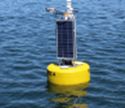 |
Systems that track performance metrics of the floating solar installation in real-time. | Sensors, data loggers, and software interfaces. | – Data logging frequency: Every minute to hourly | Enable proactive maintenance and performance optimization through data analysis. | [72] |
| Communication range: Up to several kilometers via wireless protocols |
Current usage metrics show cumulative count of Article Views (full-text article views including HTML views, PDF and ePub downloads, according to the available data) and Abstracts Views on Vision4Press platform.
Data correspond to usage on the plateform after 2015. The current usage metrics is available 48-96 hours after online publication and is updated daily on week days.
Initial download of the metrics may take a while.




